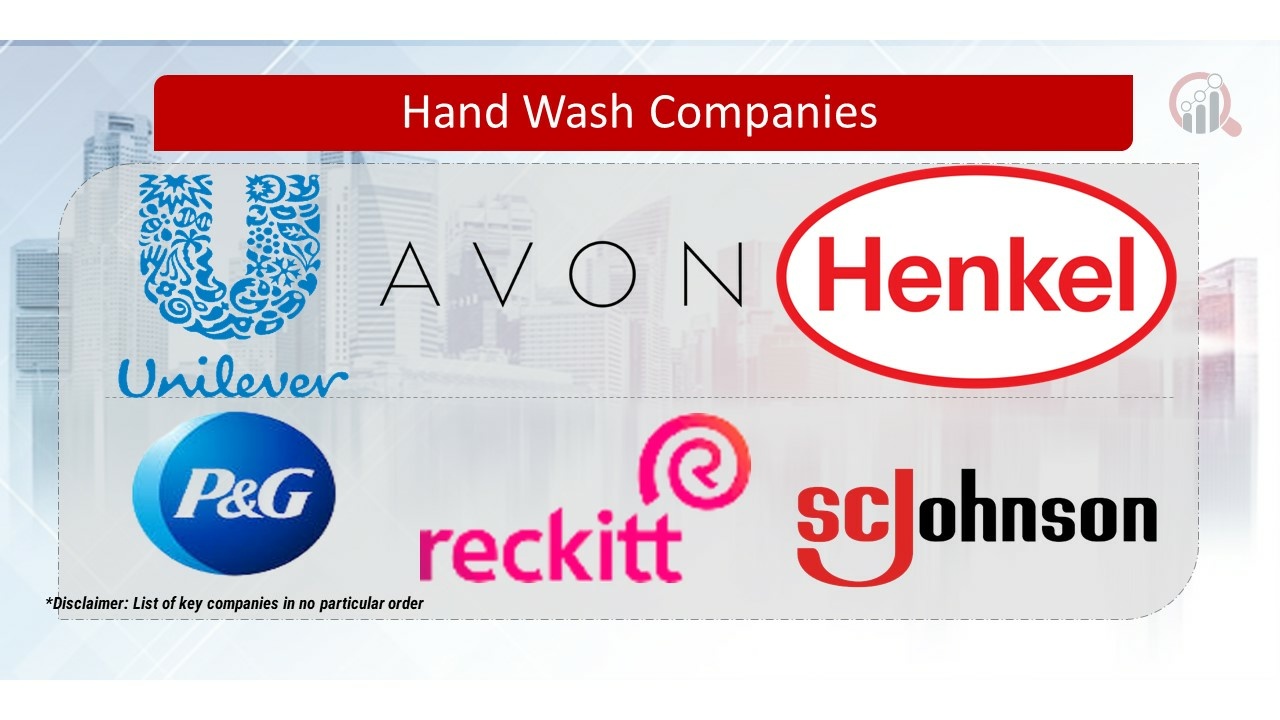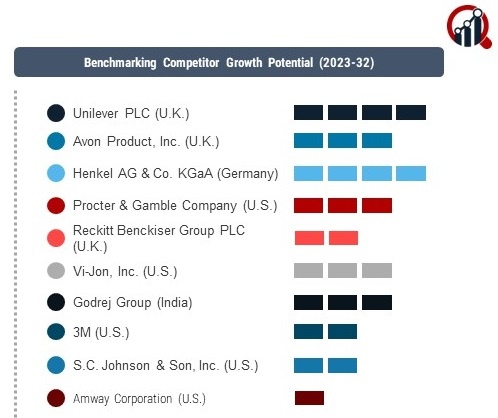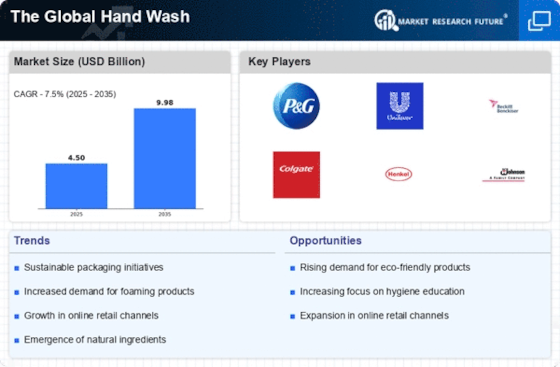Top Industry Leaders in the Hand Wash Market

The hand wash market is a fiercely competitive landscape characterized by a multitude of players vying for market share. Key players such as Procter & Gamble, Unilever, Reckitt Benckiser, and Johnson & Johnson dominate the industry with their extensive product portfolios and global presence. These established giants employ various strategies to maintain their competitive edge, including aggressive marketing campaigns, product innovation, and strategic partnerships with retailers and distributors. Additionally, they focus on enhancing brand loyalty through offering a diverse range of hand wash products catering to different consumer preferences and needs.
Factors contributing to market share analysis in the hand wash industry include product quality, pricing strategy, distribution network, brand reputation, and customer service. Companies with superior product quality and effective pricing strategies tend to capture a larger market share, while those with robust distribution networks can reach a wider customer base. Moreover, maintaining a strong brand reputation and providing exceptional customer service are crucial for retaining existing customers and attracting new ones.
In recent years, the hand wash market has witnessed the emergence of several new and innovative companies seeking to disrupt the industry with unique offerings and novel approaches. These emerging players often focus on niche segments, such as organic or eco-friendly hand wash products, to differentiate themselves from established competitors. While they may initially face challenges in terms of market penetration and brand recognition, their agility and innovative solutions pose a potential threat to incumbents in the long run.
Industry news and current company investment trends indicate a growing emphasis on sustainability and hygiene in the hand wash market. With increasing consumer awareness about the environmental impact of conventional hand wash products, companies are investing in research and development to formulate eco-friendly alternatives using biodegradable ingredients and recyclable packaging. Furthermore, the COVID-19 pandemic has underscored the importance of hand hygiene, leading to a surge in demand for antibacterial and sanitizing hand wash products. As a result, companies are ramping up production capacities and expanding their product lines to capitalize on this trend.
Overall, the competitive scenario in the hand wash market is dynamic and evolving, driven by shifting consumer preferences, technological advancements, and regulatory changes. Established players continue to dominate the industry through their extensive resources and market presence, while new entrants challenge the status quo with innovative solutions and niche offerings. With sustainability and hygiene becoming increasingly important factors influencing purchase decisions, companies are striving to adapt their strategies and offerings to stay ahead in this competitive landscape.
Hand Wash Industry Developments
April 2023:
Reckitt Benckiser Group PLC is urging consumers to use more hand wash liquid instead of soap in a recent campaign. The latest improved moisture seal formula softens the hand and has a nice scent.
September 2022:
INEOS has introduced a cost-effective hand wash solution in the United States and Europe. The launch of the new product will help the company increase income and sales.
Key Companies in The Hand Wash Market Include
- Unilever PLC (U.K.)
- Avon Product, Inc. (U.K.)
- Henkel AG & Co. KGaA (Germany)
- Procter & Gamble Company (U.S.)
- Reckitt Benckiser Group PLC (U.K.)
- Vi-Jon, Inc. (U.S.)
- Godrej Group (India)
- 3M (U.S.)
- S.C. Johnson & Son, Inc. (U.S.)
- Amway Corporation (U.S.)











